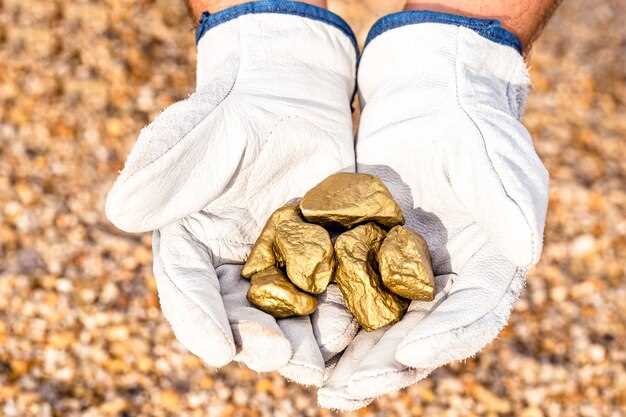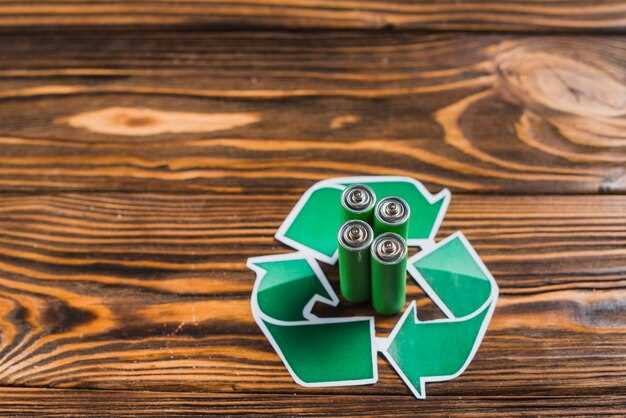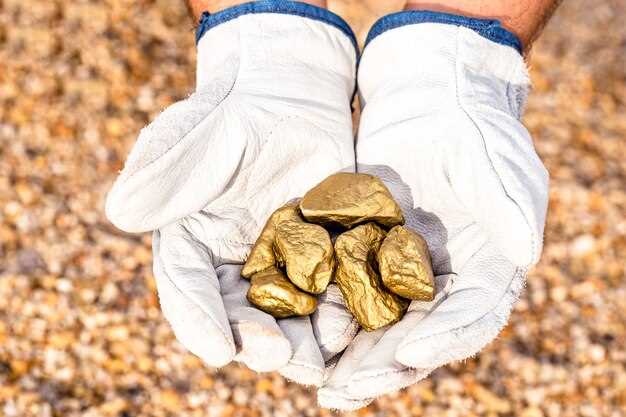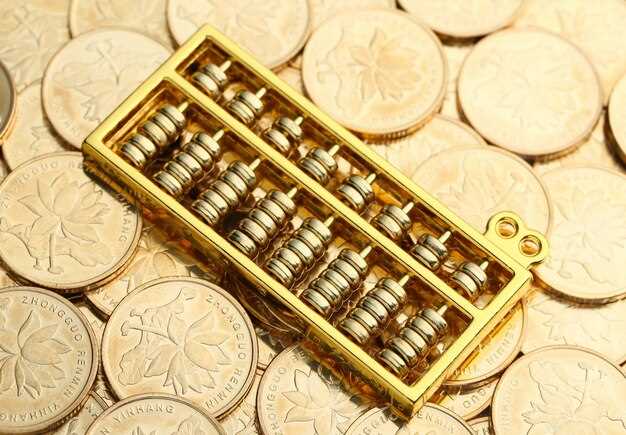For the environment-conscious consumer, choosing between recycled and Fairmined gold comes down to understanding the lifecycle and impact of each. Both options carry their unique benefits and drawbacks, but one outweighs the other in terms of sustainability metrics. Let’s uncover why recycled gold often emerges as the more environmentally friendly choice.
Recycled gold minimizes environmental harm by not requiring new mining processes. This approach means less energy consumption, reduced greenhouse gas emissions, and no destruction of ecosystems. For those concerned with industrial waste, recycled gold offers a way to utilize already extracted and processed metals, effectively transforming waste into renewed luxury. Reports indicate that recycling gold creates only a fraction of the carbon footprint compared to traditional mining methods.
On the other hand, Fairmined gold supports ethical mining practices, ensuring fair labor conditions and improved socio-economic standards for mining communities. While Fairmined gold promotes responsible sourcing, it doesn’t eliminate the significant environmental disruption inherent in the mining process. Fairmined certification aims to lessen the damage rather than eradicate it, allowing some environmental impact while improving human welfare in impoverished regions.
As consumers weigh their choices, the pivotal decision aligns with their values. If minimizing environmental impact is paramount, opting for recycled gold is likely the greener approach. Conversely, those interested in supporting ethical labor practices may find Fairmined gold aligns with their social responsibility goals. Understanding these facets helps establish a more sustainable and conscientious consumption pattern.
Recycled Gold: Impacts and Benefits

Opt for recycled gold to minimize environmental damage associated with traditional mining. Utilizing existing gold resources reduces the need for new mining operations, which notoriously devastate ecosystems, displace wildlife, and contribute to soil erosion. Transitioning to recycled gold also significantly lessens carbon emissions, as the process requires less energy compared to mining raw ore.
Choose recycled gold to support sustainable practices. By encouraging the reuse of gold, we conserve resources and reduce waste. This practice mitigates the substantial environmental degradation often seen in gold mining, such as mercury and cyanide pollution impacting water supplies and biodiversity. With recycled gold, a substantial portion of these toxic inputs is eliminated from the production process.
Embrace recycled gold for ethical consumerism. This choice supports a circular economy, where existing materials are valued and repurposed. It empowers consumers to make responsible purchasing decisions without compromising on quality. Jewelry and electronics made from recycled gold maintain their aesthetic appeal and durability while aligning with sustainable values.
Recycled gold offers economic advantages. Costs associated with mining, such as labor, extraction, and transportation are bypassed, potentially leading to savings. These savings might not only benefit producers but could also translate into more affordable options for consumers seeking sustainable luxury.
Consider recycled gold to take an active stand for environmental preservation. It encourages responsible behavior within industry practices and motivates companies to adopt greener and cleaner methods of production. Choosing products manufactured with recycled gold sends a powerful message to producers about consumer priorities, fostering positive change through impactful purchasing power.
Environmental Footprint of Recycled Gold

Opting for recycled gold significantly reduces environmental strain compared to newly mined gold. Recycled gold requires no new mining activities, drastically cutting down on the energy consumption and carbon emissions associated with traditional mining processes. Here’s a closer look at the specific environmental benefits:
- Energy Efficiency: Processing recycled gold consumes 90% less energy than mining new gold. This conserves natural resources like coal and gasoline, traditionally used in extraction and refinement.
- Waste Reduction: Recycled gold results in far less toxic waste. Gold mining generates millions of tons of waste rock and tailings, which frequently contain harmful chemicals. Recycling gold from electronic waste and jewelry minimizes the need for this hazardous by-product.
- Water Conservation: Mining operations use vast quantities of water, often depleting local resources and affecting communities. Recycled gold production utilizes minimal water, preserving local water supplies and protecting aquatic ecosystems.
- Decreased Land Disturbance: By relying on existing resources, recycled gold production avoids the deforestation, land degradation, and habitat destruction that comes with new mining operations.
Choosing recycled gold not only aligns with sustainable practices but also directly contributes to preserving the planet for future generations. When selecting gold products, consider recycled options to support eco-friendly practices.
Recycling Processes and Energy Consumption
Choose recycled gold if you aim to minimize energy consumption in the gold supply chain. Recycled gold significantly lowers energy usage compared to traditional mining. Standard recycling involves collecting, melting, and purifying gold-containing materials, a process consuming less energy than extracting and refining gold from ores. For instance, extracting gold from virgin ore can require up to 20 times more energy than recycling it.
Refining gold requires high temperatures, yet recycling saves energy by avoiding the initial crushing and grinding of raw minerals. It reduces greenhouse gas emissions by circumventing mining’s most energy-intensive stages. Most importantly, recycling gold decreases the environmental impact of mining activities such as habitat destruction and water pollution.
To ensure sustainability, opt for certified recycled gold sources. Certifications ensure adherence to environmental standards, guaranteeing that the recycling process remains energy-efficient. Partner with manufacturers committed to using green energy in their recycling processes to further reduce the carbon footprint.
In conclusion, investing in recycled gold supports eco-conscious practices by drastically cutting down energy consumption in gold production. This choice aligns with a commitment to preserve natural resources and promote environmental responsibility.
Sourcing and Traceability of Recycled Gold
Choose certified suppliers when seeking recycled gold to ensure ethical and sustainable sourcing. These suppliers must adhere to strict environmental and social standards, often verified by independent organizations. Prioritize those who provide detailed documentation, allowing you to trace the gold’s journey from recovery through refinement to delivery.
Establish a relationship with suppliers who are transparent about their sourcing practices. With technology advancements such as blockchain, it is easier than ever to verify the provenance and authenticity of recycled gold. This transparency boosts consumer confidence and supports ethical partnerships.
Consider implementing supply chain audits and collaborate with suppliers committed to continuous improvement in recycling processes. These audits can identify potential inefficiencies and drive enhancements that align with sustainability goals. Opt for suppliers engaged in recycling methods that minimize environmental impact, such as reducing energy consumption and waste during extraction.
By focusing on sourcing and traceability, businesses can assure their customers of the ethical origins of their jewelry pieces while contributing to a more sustainable future. Encourage industry-wide adoption of stringent traceability protocols to create a positive ripple effect across the jewelry market.
The Role of Recycled Gold in Circular Economy
Transitioning to recycled gold aligns directly with the principles of the circular economy. By keeping materials in use for as long as possible, recycling minimizes waste and reduces the need for new raw materials. Recycled gold addresses the challenges of environmental degradation associated with traditional mining, offering an eco-friendlier alternative that requires significantly less energy and water.
Statistics show that recycling gold is substantially less energy-intensive, with up to 95% less energy usage compared to primary mining. This drastic reduction in energy consumption translates into lower greenhouse gas emissions, supporting global efforts to combat climate change. As recycling processes continue to advance, the efficiency of gold recovery improves, enhancing its appeal as a sustainable resource.
Recycled gold also plays a critical role in reducing the environmental impact of electronic waste. As devices become obsolete, reclaiming gold from electronic waste ensures valuable materials are salvaged rather than discarded. This not only curtails gold extraction from the earth but also mitigates the accumulation of electronic waste in landfills.
To promote the use of recycled gold, consumers and businesses can prioritize sourcing from suppliers committed to environmentally responsible practices. Additionally, increasing awareness about the benefits of recycled gold can drive demand, encouraging more producers to adopt sustainable methodologies. By making intentional purchasing choices, we collectively support the principles of a circular economy, forging a more sustainable future.
Fairmined Gold: Certification and Practices

Choose Fairmined Gold to support responsible mining. This certification guarantees that miners adhere to strict environmental, labor, and social standards. The core of Fairmined’s practices involves minimizing ecological impact, such as reducing mercury and cyanide usage. Certified communities implement rehabilitation plans to restore and preserve local biodiversity after mining operations are completed.
For consumers seeking ethical purchasing choices, Fairmined Gold presents a transparent and traceable option. The certification ensures fair wages and safe working conditions for miners, significantly improving their quality of life. Communities receiving Fairmined certification also benefit from a guaranteed minimum price for their gold, fostering economic stability and sustainable development.
Support Fairmined initiatives to help reduce illicit gold trading and the negative impacts associated with unregulated mining. This choice promotes a cleaner environment and a more equitable society. By understanding and choosing Fairmined Gold, you contribute to a global effort towards sustainable mining practices and ethical consumption.
Fairmined Certification Standards
Choose Fairmined Certification to ensure your gold sourcing adheres to ethical, environmental, and social standards. Fairmined certified gold comes from small-scale mines that commit to reducing environmental impacts, improving labor conditions, and enhancing economic outcomes for local communities.
Various criteria define the Fairmined standards, which include responsible mining practices, transparency, and efficient use of resources. By sourcing gold from Fairmined certified mines, jewelers support initiatives that seek sustainable development and poverty reduction for miners and their families.
| Standards Category | Key Requirements |
|---|---|
| Environmental Stewardship | Minimize land disturbance, prevent toxic chemical usage, and rehabilitate mining areas after use. |
| Labor Conditions | Ensure safe working conditions, fair wages, and prohibition of child and forced labor. |
| Community Development | Investment in local infrastructure, education, and health services to empower communities. |
| Transparency and Traceability | Maintain clear documentation and traceability of gold from mine to market. |
The proactive involvement of local communities and miners in decision-making processes aligns with Fairmined’s commitment to fairness and equality. Supporting Fairmined Gold helps drive positive change and transitions toward more responsible mining practices worldwide.
Community Benefits and Ethical Practices
Opt for Fairmined gold to maximize positive impacts on mining communities. Fairmined certification guarantees that the gold is extracted under stringent ethical standards, providing fair wages, safe working conditions, and investments in community development. This ethical sourcing empowers local communities by supporting infrastructure, education, and health initiatives. Miners receive fair compensation and work in a safe environment, reducing the exploitation and hazardous conditions often found in artisanal mining.
Consider the direct input from revenues generated by Fairmined gold. A certain percentage is allocated towards community projects, enhancing living conditions and economic opportunities. The license fee paid by companies using Fairmined gold goes back to mining organizations, facilitating sustainable development in mining areas.
Compare this with recycled gold, which, while reducing the need for new mining, often lacks transparency about its origins. Ethical considerations are minimized, as the gold does not necessarily contribute to community advancement or adhere to specific labor rights. While environmentally efficient, recycled gold’s benefits are mostly confined to environmental aspects rather than socioeconomic improvements in mining regions.
| Aspect | Fairmined Gold | Recycled Gold |
|---|---|---|
| Community Development | Strong focus on community investment and infrastructure development. | Limited direct community impact. |
| Ethical Assurance | Ensures fair labor practices and fair compensation. | Less transparent on ethical sourcing. |
| Environmental Impact | Supports more responsible mining practices. | Reduces demand for new mining but lacks mining community support. |
The choice between Fairmined and recycled gold should weigh ethical and community benefits. By choosing Fairmined gold, you contribute to sustainable development in mining communities, enriching lives and supporting ethical practices.
Comparing Ecological Impacts with Traditional Mining
Recycled gold presents a significantly lower environmental impact compared to traditional mining. Prioritizing recycled gold helps conserve natural resources and mitigate pollution. Traditional mining often involves destructive practices such as strip mining or open-pit mining, leading to deforestation, habitat destruction, and soil erosion.
- Energy Consumption: Recycling gold consumes only a fraction of the energy required for traditional mining. Mining often necessitates large-scale extractive processes, while recycling mainly involves melting and reforming, which are less energy-intensive.
- Water Usage: Traditional gold mining demands substantial water resources, contributing to depletion and contamination of local water supplies. Conversely, recycled gold processing requires minimal water, reducing pressure on water resources.
- Pollution Levels: Conventional mining releases harmful chemicals like cyanide and mercury into the environment. These substances pose risks to ecosystems and human health. Recycling minimizes the release of toxins, supporting cleaner air and waterways.
- Land Disturbance: Mining alters landscapes extensively, damaging ecosystems and displacing communities. Recycled gold eliminates the need for new land exploitation, helping preserve biodiversity and respecting indigenous territories.
Opting for recycled gold provides a tangible opportunity to reduce ecological footprints. While traditional mining has supplied materials crucial for technology and jewelry, shifting focus to recycling aligns more closely with sustainable practices and environmental stewardship.
Q&A:

What are the environmental impacts of recycled gold compared to Fairmined gold?
Recycled gold generally has a lower environmental impact because it involves reprocessing existing gold, thus reducing the need for new mining activities. This process minimizes land disruption, water pollution, and carbon emissions associated with gold mining. However, Fairmined gold aims to minimize the ecological footprint through responsible and sustainable practices at the mine sites, ensuring that the mining process adheres to strict environmental standards.
How does the certification process differ between recycled gold and Fairmined gold?
Recycled gold does not have a specific certification process related to its extraction or initial sourcing since it involves gold that has already been sourced and used. However, recycling processes may be certified for environmental compliance. In contrast, Fairmined gold is certified through a rigorous process that ensures the gold is mined responsibly with respect to social and environmental standards, providing miners with fair wages and improving their working conditions.
How do ethical considerations factor into choosing between recycled and Fairmined gold?
When considering ethical implications, Fairmined gold supports small-scale mining communities by providing fair wages and improving working conditions. This can lead to social empowerment and economic development in mining regions. On the other hand, recycled gold supports reducing environmental degradation caused by mining but may not directly contribute to improving social conditions in mining communities.
Does using recycled gold significantly reduce the demand for newly mined gold?
Using recycled gold does help in reducing the demand for newly mined gold, as it provides an alternative source for gold supplies without engaging in further mining activities. However, the demand for gold is also driven by other factors like consumer demand for new products and the economic value of gold, which continues to stimulate mining activities independently.
What role does consumer choice play in promoting recycled and Fairmined gold?
Consumers can significantly influence the gold industry by opting for either recycled or Fairmined gold. By choosing recycled gold, consumers reduce the demand for newly mined gold, which can lead to decreased environmental impact. Opting for Fairmined gold supports ethical mining practices and aids communities dependent on mining for their livelihoods. Consumer preferences can pressure companies to adhere to more sustainable and ethical practices.



